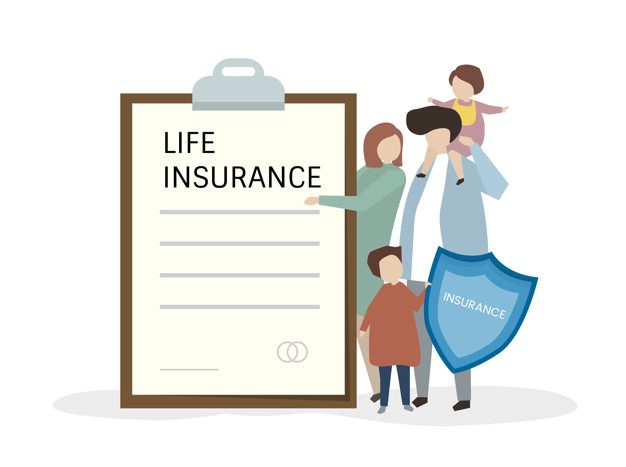A reporter once asked me three questions about shopping for term life insurance: 1. What questions should people ask themselves when considering term life insurance? 2. What questions should they ask about their term life insurance options? 3. Should people buy term life insurance online? Why or why not? Turns out I had a lot to say!
Jake Tamarkin, CEO of Everyday Life Insurance Tweet
Table of Contents
What Questions to Ask Yourself When Considering Term Life Insurance?
Buying life insurance comes with many questions. Let’s cut through the weeds and get right to what matters:
Do I Really Need It?
Maybe not. Contrary to what some old-school industry hacks may tell you, life insurance is not for everyone. However, it’s a critical financial planning tool if you have a loved one who depends on your support in order to maintain their standard of living, particularly:
- Spouses/partners
- Underage and special needs children
- Elders and other adults you care for
- Co-signers of some private student loans (check with your provider – most but not all will actually cancel your debt upon borrower’s death or permanent disability)
Consider both the financial and caregiving support you provide your loved ones. If you were gone tomorrow, would they have the resources they need to replace that support?
You will hear some life insurance agents advising that everyone should buy a basic term policy when they are young and it’s cheap, even if they don’t have someone to protect. Sorry, but the math does not support this view. Does buying stuff you don’t need make sense anywhere else in your life? Do the math and you will see that most people would be far better off saving that money instead, ideally in a tax-deferred retirement account.
By skipping permanent insurance and focusing on term, you have already made a great choice. Hurray! Permanent insurance is incredibly expensive with little to show for the extra cost. Term coverage is all you need.
Related: What’s the Difference Between Term Life and Whole Life Insurance?
How Much Life Insurance Do I Need, and For How Long?
Getting this question right is critical, and too many agents and buyers don’t put enough effort into it. The work is worth it because this is the biggest driver of both the ultimate cost of your coverage as well as the peace of mind that you are fully protecting your family.
Many people overpay because they don’t take into account how their needs are likely to change over time. For example, suppose you are buying life insurance to support your newborn child until they graduate from college. That’s perhaps 22 years of your after-tax income you need to be covered today.
But in 10 years, you will only need 12 years of your income covered. You can save 30 to 60% off your cost by stacking a couple of smaller policies that step down over time, rather than buying one big policy that leaves you overinsured and overpaying from day one and even more so down the road.
Also, the life insurance you may get through work is unlikely to be sufficient for your needs. Plus, you probably can’t take it with you when you change jobs. So consider it a nice perk and include it in your math but you are doing your family a disservice if you think your employer is providing you with all the life insurance you need.
Bottom line: This is coverage you are likely to have for many years. Follow the carpenter’s credo: measure twice and cut once.
Related: How Much Does Life Insurance Cost?
What Questions Should You Ask About Your Term Life Insurance Options?
Besides asking about your life insurance needs, you must understand your options. Here’s what you need to know:
Is This Insurer A-Rated?
Insurance companies are heavily regulated and among the least likely institutions to go under. I advise clients to not worry as much about which particular carrier they work with so long as they are A-rated by AM Best or another rating agency. This information is readily available on a company’s website and pretty much all you need to know.
What is More Important to Me, Convenience or Cost?
Like anything else in life, you get what you pay for — and convenience has a price when it comes to life insurance. Fully underwritten insurance is much, much cheaper but may require a medical exam depending on your situation and the carrier’s risk appetite.
If a provider promises in their marketing material that no medical exam will be required, you can be sure they are charging you more for the incremental risk they are taking, and the extra cost can be huge.
When I bought some recently, I went with fully underwritten. Yes, it can be a bit of a hassle – though insurers are getting better than they used to be on this – but it’s something I am going to keep for decades and will save thousands of dollars over that time. I would rather spend that money on family vacations and other fun stuff than padding my insurer’s profits.
Related: What Is Non-Medical Life Insurance?
Should You Buy Term Life Insurance Online? Why or Why Not?
Online is the future and in fact, online is the only growing channel for the life insurance industry. Still, many people prefer the old-school approach of an in-person meeting with an agent.
Unfortunately, however, most agents these days are focused on wealthier clients and won’t give regular people the time and attention they deserve. Fortunately, the online options are rapidly improving and some of the very best options are exclusively available online.
Regardless of whether you buy online or offline, it’s worth it to shop around and assess your options before you apply. Online options generally fall into three buckets:
- End-to-end service providers. These tend to offer a more seamless online experience but generally have fewer options to choose from. When you go to a Chevy dealership, they are only going to offer Chevys.
- Aggregators. These are more like traditional independent agents whose main value is in making it easier to comparison shop. However, the trade-off is more of an old-school buying experience with paperwork, multiple phone calls and probably a longer underwriting process.
- Lead generators. At first glance, a lead generator might be easily confused with an aggregator – that is not an accident. However, they are actually just going to sell your information to one or more agents who will pounce on your phone and email like there’s no tomorrow. I know because this has happened to me and I had three unrelated agents calling me within 20 minutes and a gazillion emails for weeks after. No thanks. A good rule of thumb is to look twice at any site that requires your contact information before they will provide quotes.
Your Next Steps for Life Insurance
I hope this helps. As you can see, we are passionate about the topic of helping people cut through the noise and get the right solution for their situation. That’s why we focus on transparency and education when providing life insurance quotes to customers.
You may have additional questions of your own. We would love to hear them and help you, so contact us and fire away!
If you’re ready for the next step, use The Ultimate Life Insurance Calculator to get a free quote — no contact info required!



